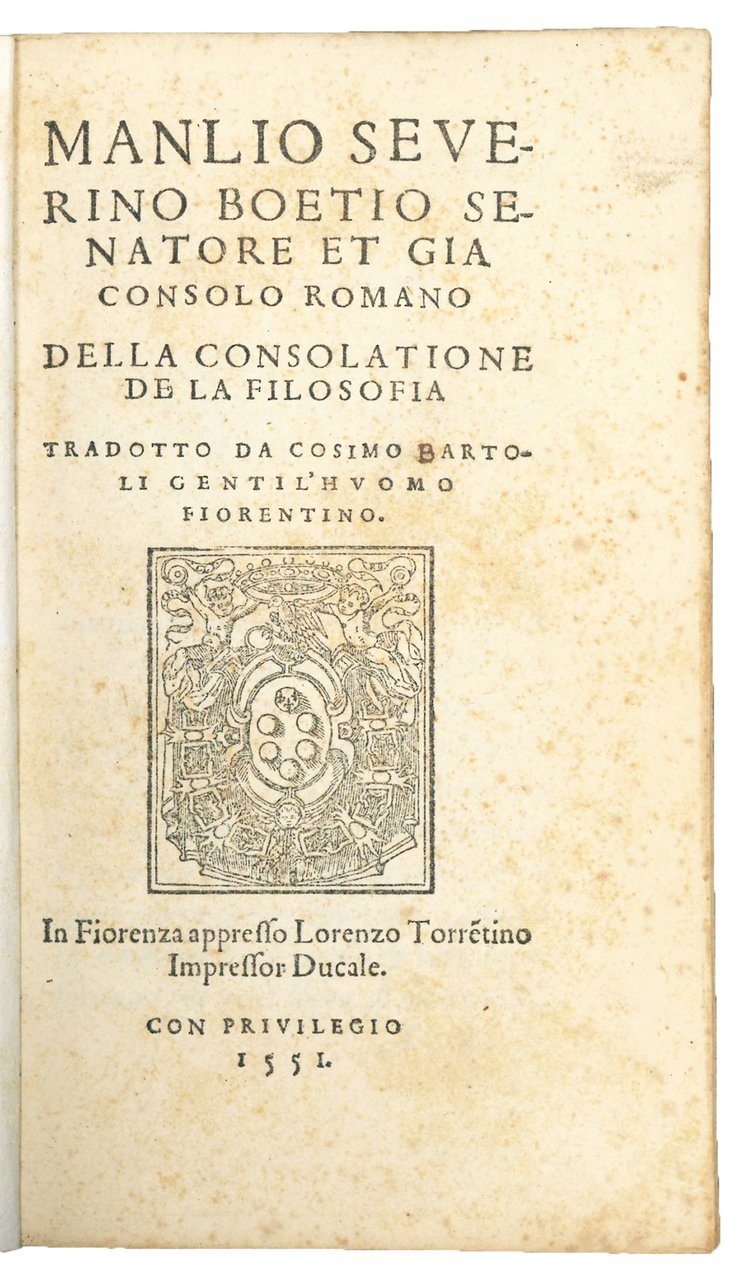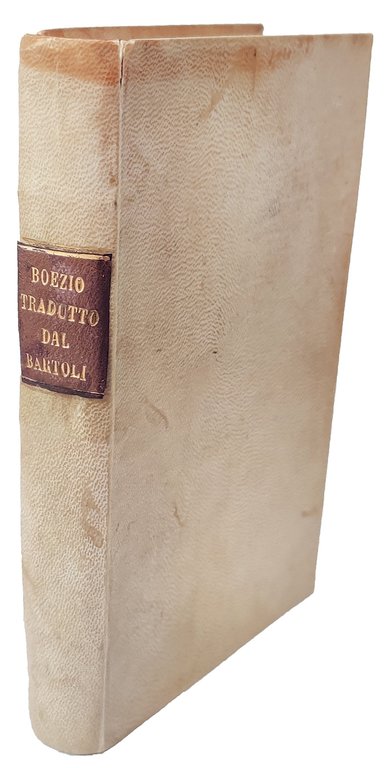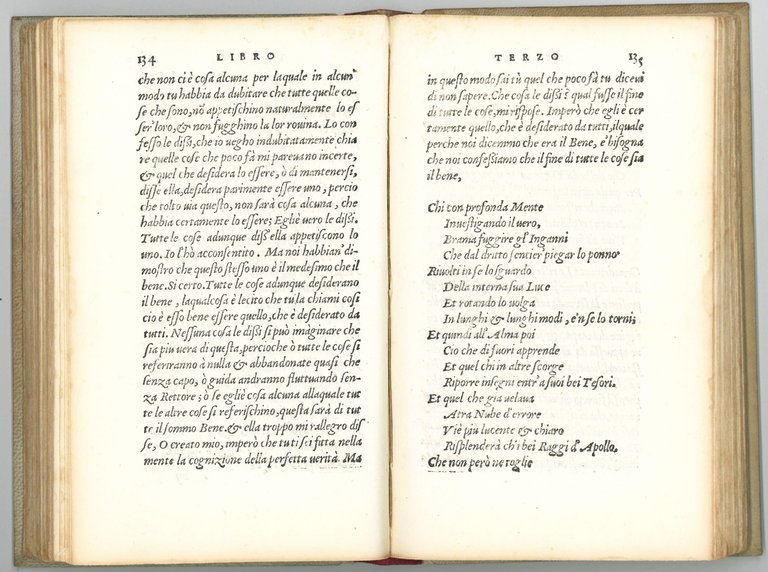


Libros antiguos y modernos
BOETHIUS, Anicius Manlius Torquatus Severinus (ca. 480-524)-BA
Della consolatione de la filosofia tradotto da Cosimo Bartoli gentil'huomo fiorentino
Lorenzo Torrentino, February 1551
500,00 €
Govi Libreria Antiquaria
(Modena, Italia)
Los gastos de envío correctos se calculan una vez añadida la dirección de envío durante la creación del pedido. El vendedor puede elegir uno o varios métodos de envío: standard, express, economy o in store pick-up.
Condiciones de envío de la Librería:
Para los productos con un precio superior a 300 euros, es posible solicitar un plan de pago a plazos al Maremagnum. El pago puede efectuarse con Carta del Docente, Carta della cultura giovani e del merito, Administración Pública.
Los plazos de entrega se estiman en función de los plazos de envío de la librería y del transportista. En caso de retención aduanera, pueden producirse retrasos en la entrega. Los posibles gastos de aduana corren a cargo del destinatario.
Pulsa para saber másFormas de Pago
- PayPal
- Tarjeta de crédito
- Transferencia Bancaria
-
-
Descubre cómo utilizar
tu Carta del Docente -
Descubre cómo utilizar
tu Carta della cultura giovani e del merito
Detalles
Descripción
First edition of the De consolatione Philosophiae in the Italian translation by Cosimo Bartoli. In the late 1540s, Emperor Charles V, in anticipation of his retirement from public life, requested to the Duke of Florence Cosimo I a new Italian version of Boethius' work. The duke entrusted the task to three leading Florentine academics: Ludovico Domenichi, BenedettoVarchi, and Bartoli. All three translations were published by Torrentino between 1550 and 1551. It was Varchi's that met with the greatest success as he better managed to maintain the alternation between verse and prose of the original text.
The volume has a double dedication: the first to Cosimo I is dated May 5, 1549, while the second to Ferrante Sanseverino, prince of Salerno, is dated January 1, 1550.
The reasons for such a revival of Boethius' work in the Florentine academic circles, beyond the imperial commission, are manifold. On the one hand, the ancient philosopher's fame for its extraordinary erudition, his reputation as a translator and commentator on Plato and Aristotle (as well as synthesizer of their philosophies), his influence on Dante, and the widespread belief that he was closed to the Christian spirit. On the other hand, the great consolatory value that that text exerted on men who were effectively exposed to the whims of other more powerful men and of fortune (cf. J. Bryce, Cosimo Bartoli (1503-1572). The Career of a Florentine Polymath, Genève, 1983, pp. 172-176).
Edit 16, CNCE6563; Moreni, pp. 171-173.

